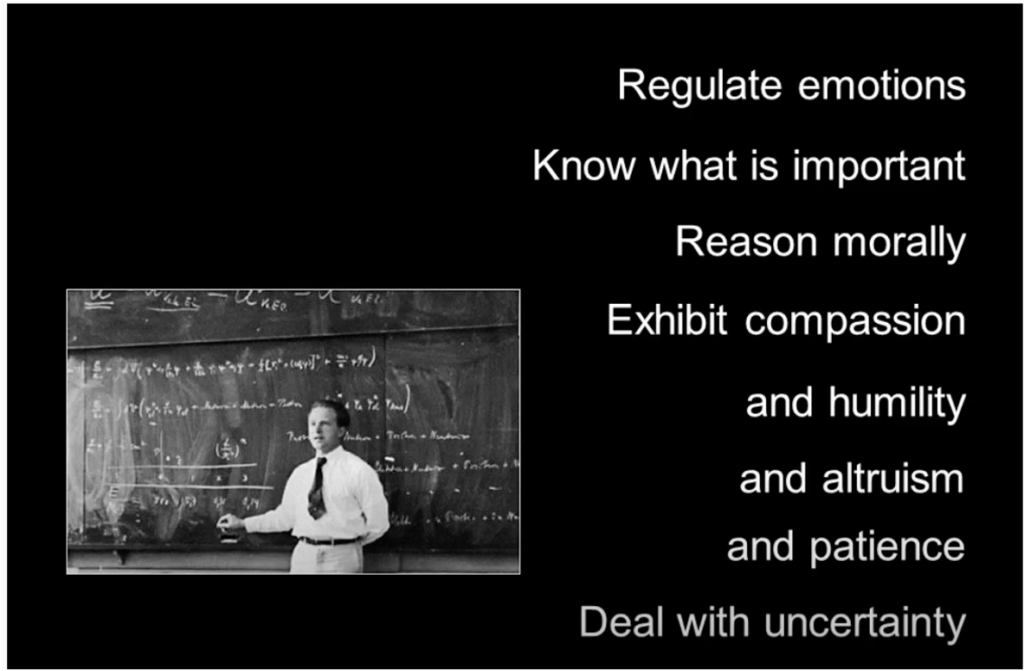My social media feeds have been filled with many stories about “the next big thing” in technology and education. I suppose we expect such lists to be popular at important (and arbitrary) transitions like the end of one decade and the beginning of next. (For me, I am a few short weeks from working as an education professional in my fifth decade, so the third decade of this century does mark a personal milestone.)
This has me thinking, again, about a question that held my attention a few years ago. “What exactly do computers do better than humans?” and the obvious alternative “What do humans do better than computers?” Computers are far better than humans at:
- Shouting—messages get from my devices around the world almost immediately; use a computer and anyone connected to the same Internet as you will hear you a few moments after the message is sent.
- Listening—messages arrive at my inbox and patiently await my reading, listening (or ignoring).
- Remembering—the trite pieces I have forgotten writing are stored on my external hard drive or in my cloud folders and they can be retrieved and perfectly restored (usually) with little effort. Those disks have faithfully remembered writing that should have been forgotten long ago.
- Following rules—Digital data can be searched, sorted, filtered, computed, displayed, or otherwise manipulated very quickly… as long as the manipulation can be reduced to clear and unambiguous rules that can be translated into instructions that computer can follow.
These are valuable functions. For many generations, we understood these to be important aspects of human cognition and schools taught reading, writing, and mathematics so that our students could perform these functions at a level that allowed them to participate in our world filled with other humans whose economies, politics, and culture were all built upon similar skills for all.
With the arrival of computers, however, we discovered these are part of human cognition that should be downloaded to our digital devices; as they are far better at shouting, listening, remembering, and following rules than we will ever be. At this point, it is irresponsible for educators to avoid helping young people how to use them for those functions.
It is also irresponsible for educators to avoid helping students recognize, develop, and refine those aspects of cognition that technology will be hard pressed to ever replicate. I do now want to get into a debate about the items I have added to my list and I do not want to go into detail justifying my list.
I do present, however, my list of “things” human do better than computers. I expect anyone who wants to be working in education for more than 30 years (as I have) will be safe in being one how focuses on these aspects of human thinking:
